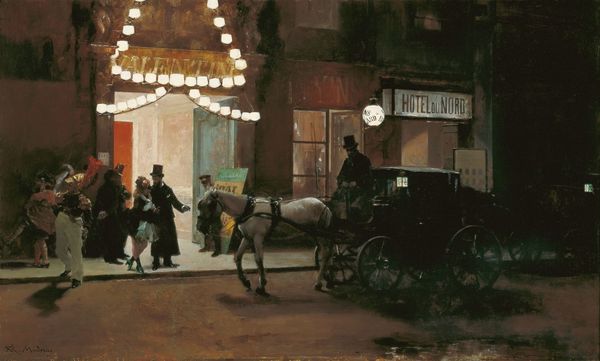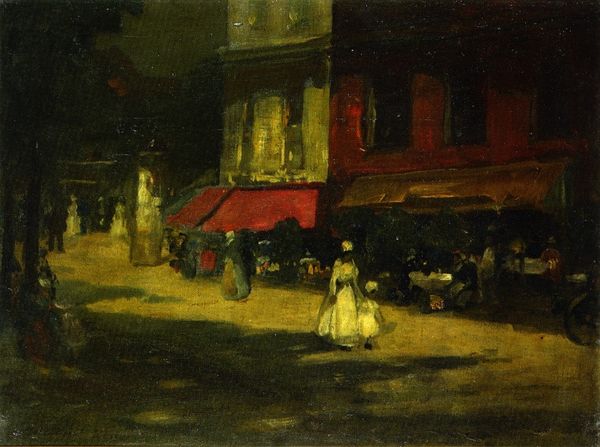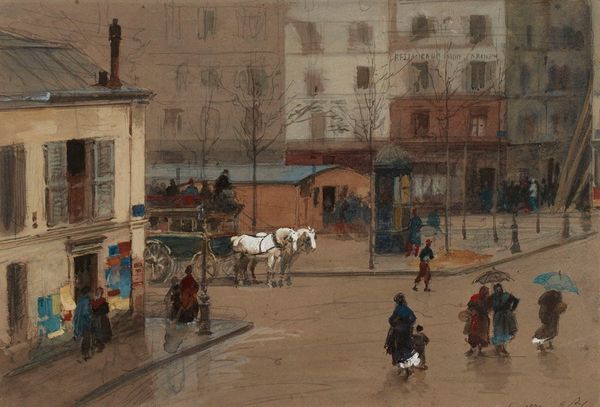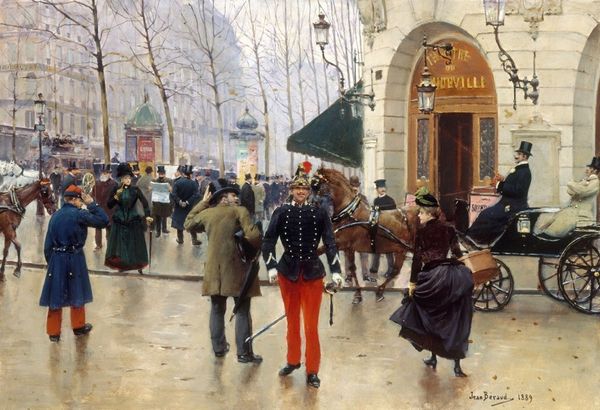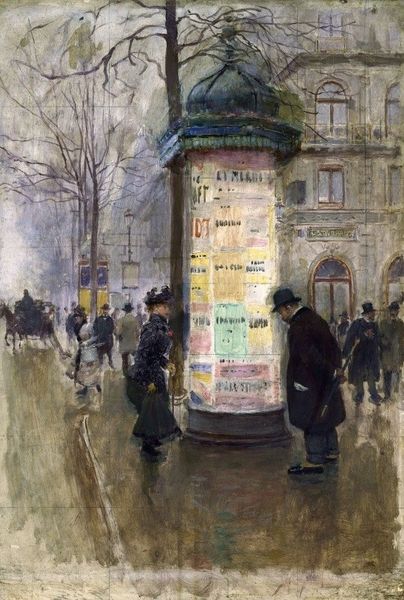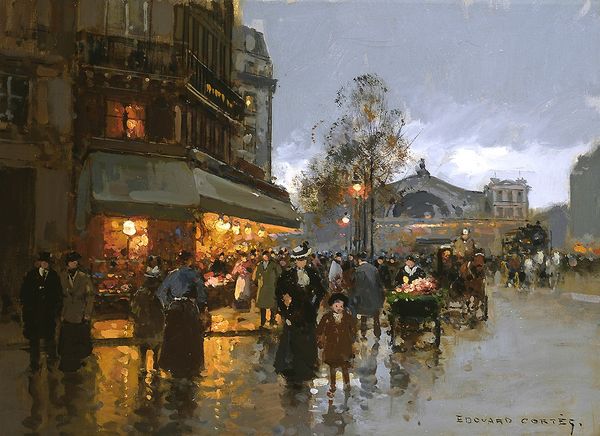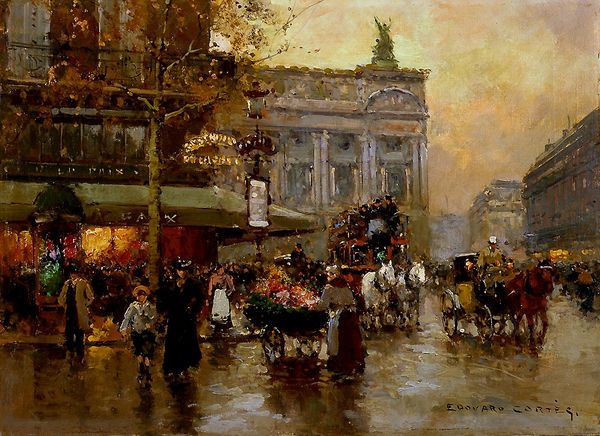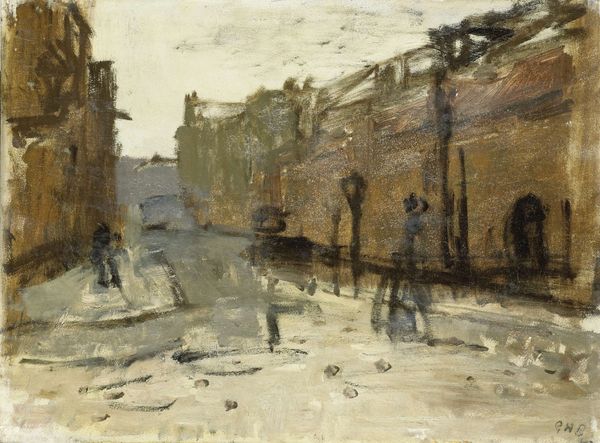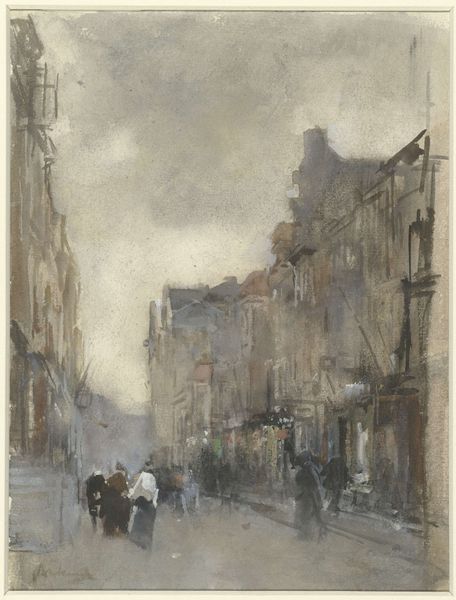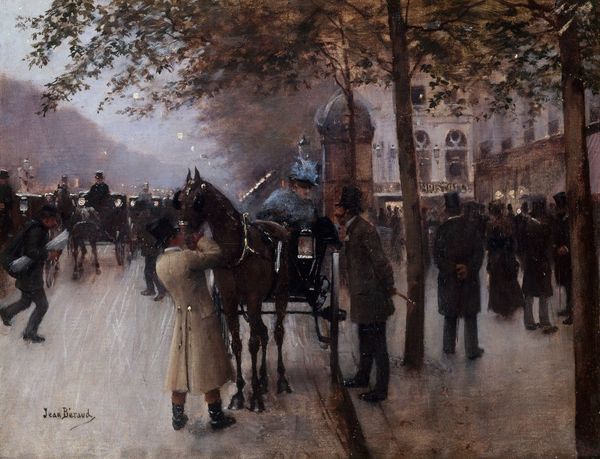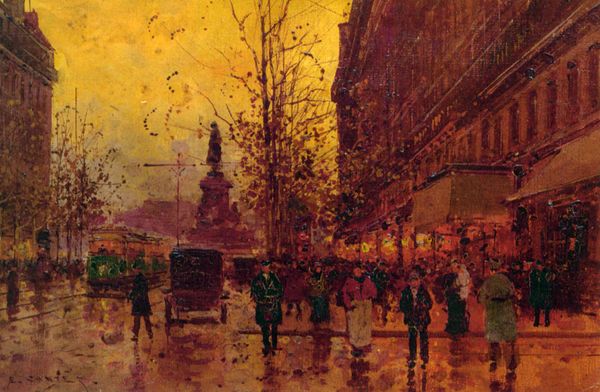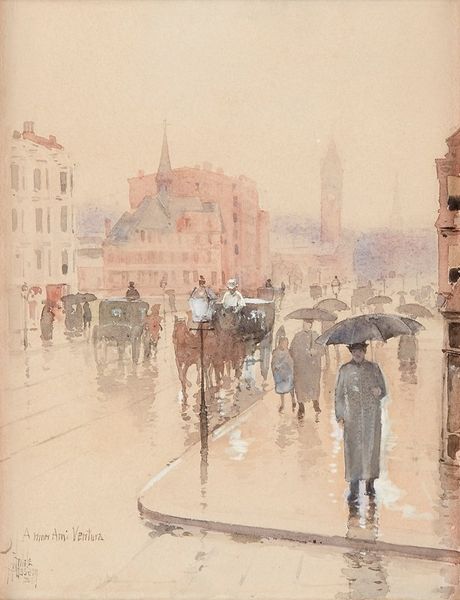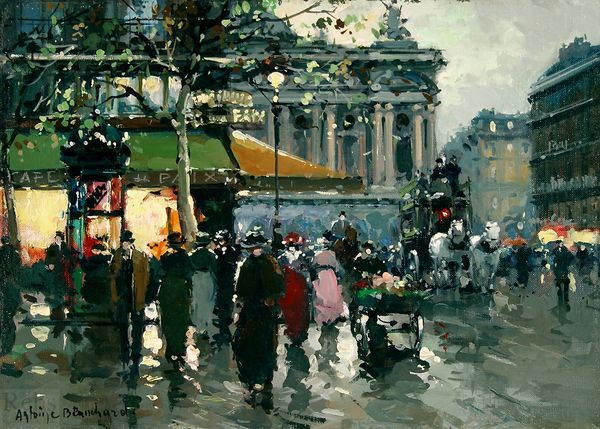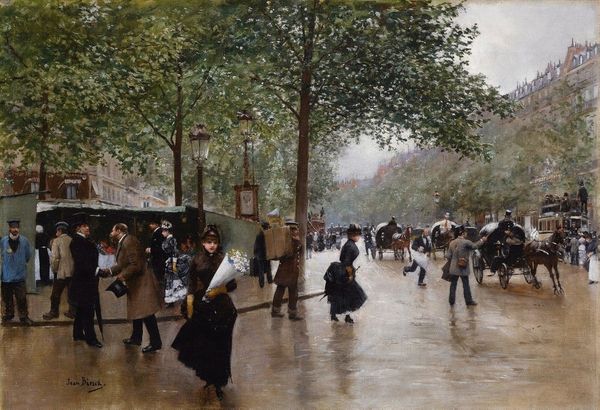
painting, watercolor
#
painting
#
impressionism
#
watercolor
#
cityscape
#
genre-painting
#
street
#
watercolor
Copyright: Public domain
Curator: Anders Zorn's "Impressions of London," painted in 1890. What strikes you most when you first look at it? Editor: Immediately, this evokes a certain urban unease. It's hazy, indistinct figures, suggesting a city where everyone is simultaneously present and anonymous. The near-monochromatic palette adds to this alienation. Curator: Zorn captures a fleeting moment. It is executed in watercolor, which explains the wispy quality, that blurring, that soft focus—perfect for rendering atmosphere. But London—did it really feel this gray? Or is this an artistic filtering? Editor: Oh, it was gray, but also very classed. Notice the figures - a possible omnibus suggesting working-class transport. Juxtapose that against the ghostly hint of wealth in the upper left—a commentary on urban life perhaps? Curator: I love how the watercolor bleeds—those deliberate runs seem to suggest movement, chaos, the constant churning of a metropolis. Do you think he's romanticizing the grime? Or simply being observant? Editor: Neither—this reminds me of Walter Benjamin's "flâneur," that detached observer drifting through the city. Zorn’s London exists for the eye, for spectacle, divorced from any real sense of lived experience for its inhabitants. It feels as though he saw only the surfaces of London and then chose to paint exactly what he saw without any real emotional response. Curator: Perhaps you're right—or perhaps he found a sort of brutal beauty in that superficiality. And maybe it is his own subjective impressions that he sought to depict! I am not quite sure, however, I did not enjoy it. Editor: Its muted palette makes it almost a commentary on the rapid urbanization. Interesting that you ask this to me because there is the clear representation of the pearl bus that might give the impression it is his own feeling about that and he clearly painted them as he could not find any interest, beauty or artistic relevance to them at all. The bus really comes off as the odd part and he may well be sharing that this technology to improve the life quality and comfort in general is useless if the emotional support cannot be established between individuals. Curator: Food for thought there. Zorn gives us the space to add in our personal interpretations of that feeling. It's still rather melancholic. Editor: Precisely. Perhaps Zorn prompts us to question the price of "progress," reminding us that the beauty of impressionism can also reflect unsettling realities of societal shifts and their impacts.
Comments
No comments
Be the first to comment and join the conversation on the ultimate creative platform.
